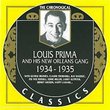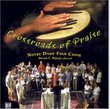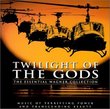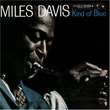| All Artists: Claude Debussy, Leonard Bernstein, New York Philharmonic Title: Debussy: La Mer; Pr�lude � l'apr�s-midi d'un faune; etc. Members Wishing: 0 Total Copies: 0 Label: Sony Release Date: 3/16/1999 Genre: Classical Styles: Ballets & Dances, Ballets, Historical Periods, Modern, 20th, & 21st Century, Symphonies Number of Discs: 1 SwapaCD Credits: 1 UPC: 074646097229 |
Search - Claude Debussy, Leonard Bernstein, New York Philharmonic :: Debussy: La Mer; Pr�lude � l'apr�s-midi d'un faune; etc.
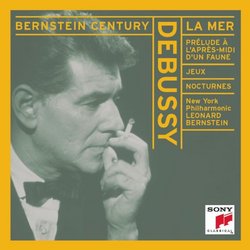 | Claude Debussy, Leonard Bernstein, New York Philharmonic Debussy: La Mer; Pr�lude � l'apr�s-midi d'un faune; etc. Genre: Classical
|
Larger Image |
CD DetailsSimilar CDsSimilarly Requested CDs
|
CD ReviewsNot for flutists Carolyn | 10/16/2004 (2 out of 5 stars) "I was really disappointed after hearing "Prelude to the Afternoon of a Faun" on this CD. The opening solo flutist uses a "nanny-goat" vibrato that was popular some years ago and is out of tune. The other selections on the CD are OK, but I don't think I can ever listen to "Faun" again." One of the Very Best Debussy Collections Around goodmusicman | USA | 04/04/2008 (5 out of 5 stars) "Leonard Bernstein's recordings of Debussy's major orchestral works with the NY Philharmonic are easily the most underrated of all Debussy recordings. Everyone talks about Boulez, Munch, and Karajan but you'll hardly see a mention of Bernstein. Well, that's a shame because Bernstein's Debussy is outstanding in every respect. He has a rare combination of a careful ear for detail--so that none of Debussy's effects gets lost or muddled--as well as a feeling for the color and sweep of the works. This makes Debussy's impressionism all the more compelling. Bernstein's La Mer is one of the best I've heard, with really powerful climaxes in the first and third movements. His tempos are pitch perfect. He never overly caresses the music nor does he rush through it. The results must be heard to be appreciated. His Prelude to an Afternoon of a Faun is dreamy and lyrical--as good as this piece gets. His Jeux is brash and colorful and a far more enjoyable listen than many other renditions of this work. Perhaps the greatest standout are the Nocturnes--precisely what one reviewer thought was lacking. Indeed only the first two are included, but the third (for wordless female chorus ala "Neptune" from Holst's "The Planets") is of such a different sound world than the first two that it doesn't feel like anything is missing. I have never heard the second movement of Nocturnes played with as much enthusiastic energy as this one. It is a truly thrilling experience, worth the price of admission alone. Unlike many Bernstein Century CDs, this one features 24-bit remastering instead of 20-bit, so these early 1960s performances sound as vivid as they'll ever get, with minimal background hiss. If you're looking for an outstanding collection of Debussy's best orchestral works, look no further: this is the one to get." Debussy awash in color, warm and affectionate Santa Fe Listener | Santa Fe, NM USA | 02/20/2007 (5 out of 5 stars) "Our listening to Debussy was forever changed when Pierre Boulez, Bernstein's immediate successor at the NY Phil., began to make recordings that were models of clarity and detail, x-raying the score and making every chord crystalline. Compared to that approach, LB's Debussy (all of it early, from 1960-61) is extroverted, colorful, and loose arounnd the edges. It's much more celebratory than Boulez's, but modern listeners might find these performances a bit thick-textured and brash. They are never praised very much, despite their verve and musicality.
I love them because "warm" Debussy has become an extinct style, and all these readings (like Stokowski's Debussy) are irrepressibly sunny. The NY Phil. was an orchestra of virtuosos, as is evident from John Wummer's flute in Afternoon of a Faun, backed up by the exquisite oboe of Harold Gomberg. I lament that Columbia Records was apparently too cheap to hire a chorus for the third of Debussy's Trois Nocturnes, but the remaining two movements are splashy and more extroverted than one often hears. There's such naturalness in Bernstein's phrasing that nothing sounds precious or mannered--no mean feat in Debussy. The unusual feature here is the enigmatic Jeux, a late work written for a Diaghalev ballet featuring tennis players and choreographed by no less than Nijinsky. You can see why the ballet wasn't a hit; Debussy's harmonies are enigmatic, there are no tunes, not even a definable structure. Seventeen minutes of diaphanous color wash isns't easy to follow, but Bernstein's warmth and spontaneous expression bring the work alive, far more than usual. I think this reading could win Jeux more fans than the antiseptic dissections we've gotten used to in the post-Boulez era." |

 Track Listings (7) - Disc #1
Track Listings (7) - Disc #1
